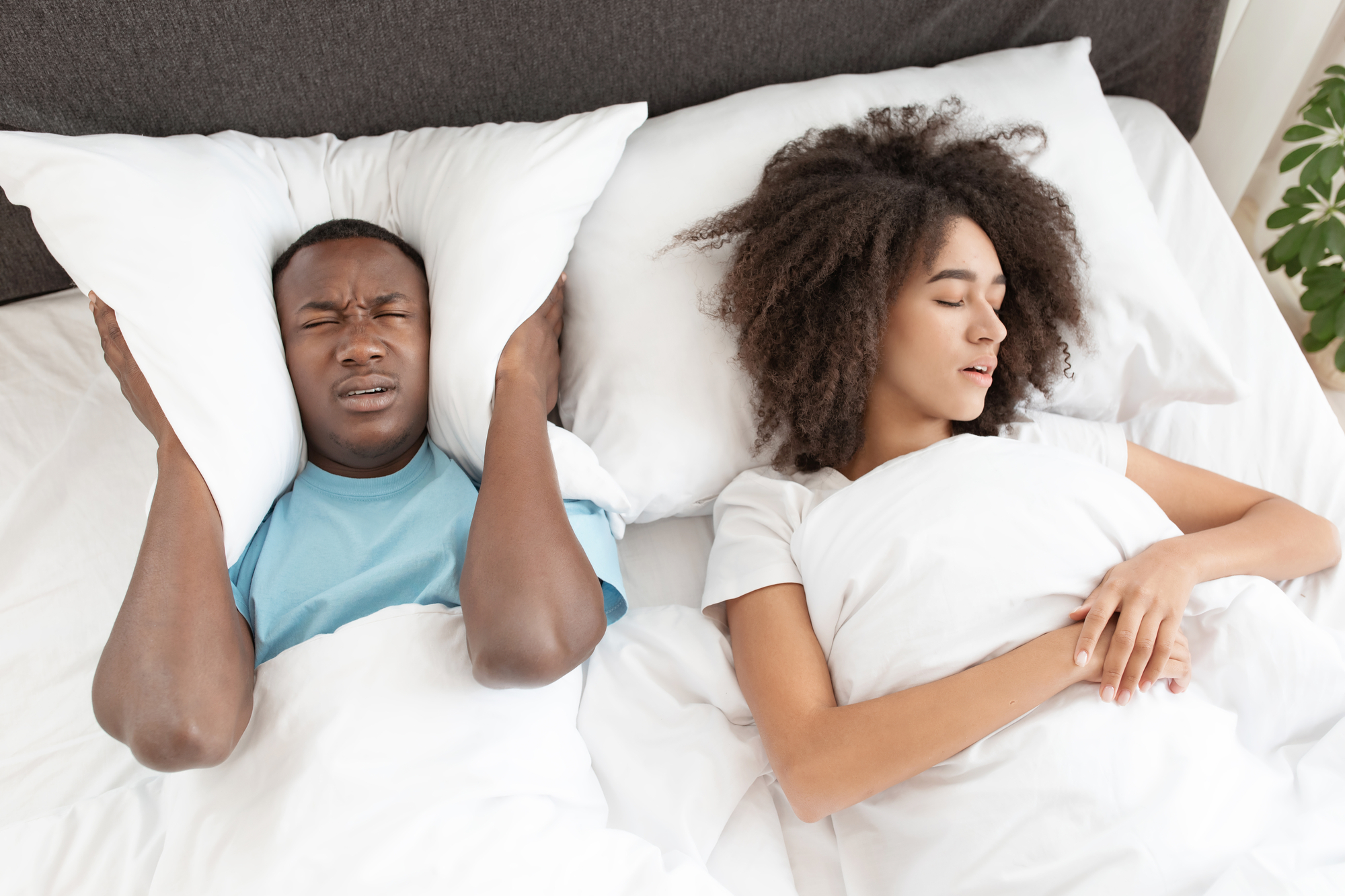I grind my teeth during sleep. Why do I do this? How can I prevent it?
What is Sleep Bruxism?
Many people grind their teeth during sleep—another term for which is sleep bruxism. For most people, it is not considered a disorder but, rather, a habit that results from having teeth that fit tightly together. It is simply an oral behavior that comes and goes throughout life.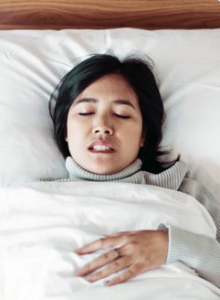
Sleep bruxism is more common in children, which is often reported by parents who hear the unpleasant noise while their children sleep. The frequency of sleep bruxism drops with increasing age, with about 12% of adults knowing that they have sleep bruxism. Most times, people become aware of this problem because their sleep partner tells them that they make a grinding noise, like rubbing rocks, during their sleep or because the person with bruxism is concerned about tooth wear or damage to dental restoration or has tired or sore jaw muscle in the morning.
Risk factors for sleep bruxism include life pressure, which may be felt as stress or anxiety. However, this is not always the case because individuals vary in how they manifest stress. In the past, very small (micro) abnormal tooth contacts were described as the cause of bruxism; however, nowadays, scientific evidence does not support this finding.
In otherwise healthy people, sleep bruxism is associated with brief and temporary vigorous reactivity of the heart and muscles during sleep. Indeed, during sleep, our nervous system revisits our external environment every 20-40 seconds. This process is natural and is named cyclic alternating pattern. Its role is to protect us from any event that can be a threat to our integrity and survival. You can think of this reactivity in terms of a cuckoo clock. At repeated regular intervals (in the case of the cuckoo clock, every 15 minutes), the bird pops out of the clock and scans its environment. If all is fine, the bird goes back in the clock. Something similar happens within your body—every 20-40 seconds, your “bird” (that is your nervous system) checks in with the rest of your body. If everything is OK, your nervous system shuts back down; however, if your sleeping brain perceives a threat, it will prepare your heart and muscles to react. This is a natural protective mechanism. Most sleep bruxism events occur in sync with such periodic arousals from sleep.
IS SLEEP BRUXISM ASSOCIATED WITH OTHER CONDITIONS?
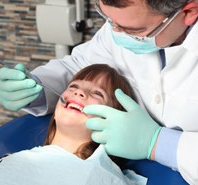
In some individuals, sleep bruxism can be associated with other conditions, what is termed comorbidities. The comorbidities include jaw pain and headache, difficulty with falling asleep or staying asleep (insomnia), snoring, or irregular breathing pauses during sleep (obstructive sleep apnea). Such associations do not explain the causes of sleep bruxism; however, it is worth noting that such comorbidities are present in about one in every three people with sleep bruxism.
Gastroesophageal reflux, in which the stomach contents can back up into the esophagus, can also be present in people with sleep bruxism, and it is more likely associated with the aforementioned breathing disturbances or sleep apnea. In very rare cases, tooth grinding or tooth tapping during sleep can be associated with neurologic conditions, such as sleep epilepsy, or motor behavior related to vivid dreams (rapid eye movement [REM] sleep behavior disorder in which people act out their dreams during sleep). The presence of sleep bruxism with comorbidities requires more specific medical investigations, including sleep recording at home or in a laboratory.
HOW IS SLEEP BRUXISM TREATED?
If you don’t have comorbidities, your sleep bruxism can be managed by a dentist using protective oral appliances (an occlusal splint) that reduce the grinding sounds and the risk of damaging your teeth. You may not stop grinding, but the grinding will be less destructive and much less noisy. If your sleep bruxism is very intense or you feel a lot of jaw muscle tiredness or soreness, the occlusal splint will reduce the jaw muscle and articulation overload. Your dentist or physician may prescribe a muscle relaxant to help in the short term; these medications should be taken before sleep, and you should be careful to avoid falls and not drive or use dangerous machinery.
In some people who have intense sleep bruxism, botulinum toxin, which is injected every few months into the jaw muscles, can reduce the strength of the muscle contractions. In rare cases, some cardioactive medication can be used in the short term to calm the periodic arousals of sleep or overactive “cuckoo bird” system; this should only be started under medical supervision. A physical therapist or psychologist can teach you relaxation techniques. Much more research is needed to support such approaches.
If you have pain or headache, short-term use of some pain-relieving medication mixed with a muscle relaxant can help. Again, be aware of the risk of falls and accidents on the road or at work. If you have both diagnosed sleep apnea and sleep bruxism, you could use a device that pushes air to open your airway (continuous positive airway pressure or CPAP) or a mandibular oral device that advances your lower jaw to keep your airway open. In children, a surgeon or orthodontist can correct large tonsils or a narrow palate with a small lower jaw (retrognathia). Gastric reflux can be managed, under medical advice, by diet, correcting your sleep position (away from on your back), and using medication. Rare neurologic comorbidities related to sleep bruxism obviously need to be treated by a medical expert.
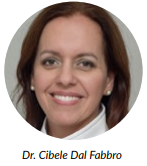 Cibele Dal Fabbro (DDS, PhD) is a clinician-scientist from Sao Paulo, Brazil, where she did her master’s and PhD and now she is an associate professor at Université de Montréal, and researcher at Center for Advanced Research in Sleep Medicine, CIUSSS Nord Ile de Montreal in Canada. She has been coordinating a dental medicine course over the last 12 years at Sleep Institute in Sao Paulo and running a clinic in the same domain.
Cibele Dal Fabbro (DDS, PhD) is a clinician-scientist from Sao Paulo, Brazil, where she did her master’s and PhD and now she is an associate professor at Université de Montréal, and researcher at Center for Advanced Research in Sleep Medicine, CIUSSS Nord Ile de Montreal in Canada. She has been coordinating a dental medicine course over the last 12 years at Sleep Institute in Sao Paulo and running a clinic in the same domain.
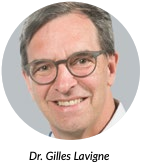 Gilles Lavigne, DMD, PhD, FRDC, hc is a professor in dental medicine at the Universite de Montreal, Canada and Center for Advanced Research in Sleep Medicine, CIUSSS Nord Ile de Montreal and CHUM. He conducts clinical research in orofacial pain and related sleep disorders including sleep bruxism and apnea.
Gilles Lavigne, DMD, PhD, FRDC, hc is a professor in dental medicine at the Universite de Montreal, Canada and Center for Advanced Research in Sleep Medicine, CIUSSS Nord Ile de Montreal and CHUM. He conducts clinical research in orofacial pain and related sleep disorders including sleep bruxism and apnea.

